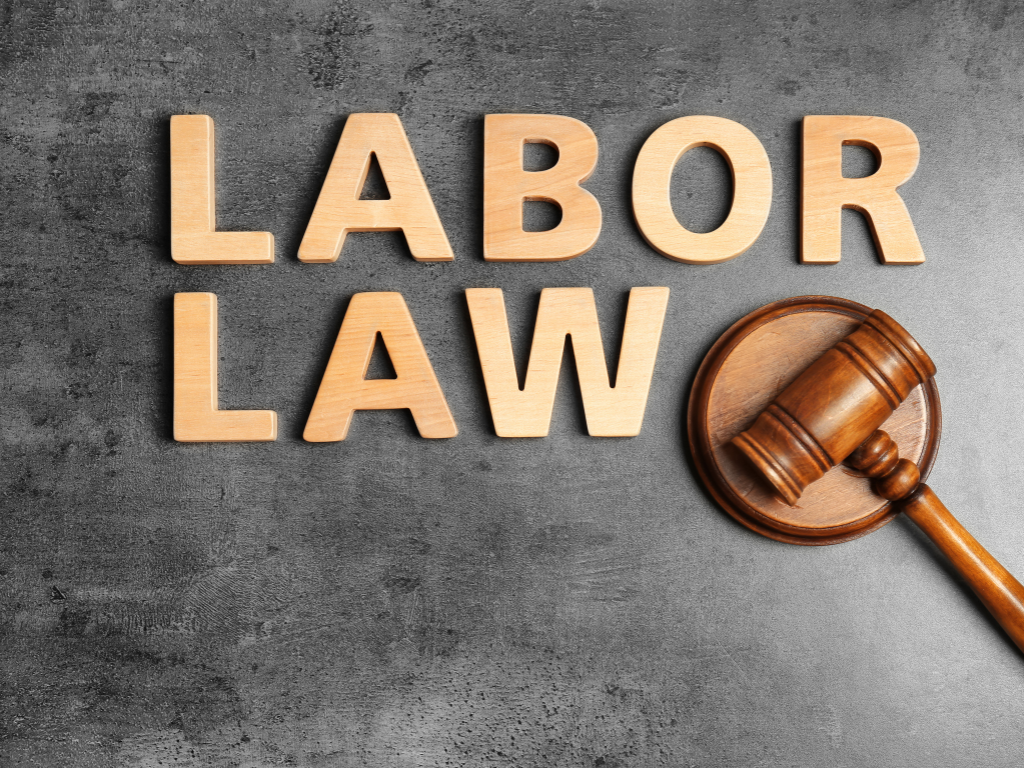Call us now:
Labor disputes seriously affect the employment relationship between employers and employees. So, what is a labor dispute? What are the causes of labor disputes in Vietnam?

What is a Labor Dispute?
A labor dispute is a situation that arises when there is disagreement or conflict between an employee (which can be an individual or a group of employees) and an employer (usually a business or organization) concerning working conditions, rights, and obligations of both parties as prescribed by labor laws or employment contracts.
Types of Labor Disputes in Vietnam
According to Article 179 of the 2019 Labor Code, there are two types of labor disputes in Vietnam:
Individual Labor Disputes
Individual labor disputes arise between an individual employee and the employer regarding the interpretation and implementation of labor law provisions, collective bargaining agreements, individual labor contracts, workplace regulations, and the company’s rules on the rights, obligations, and legitimate interests of the employee.
Collective Labor Disputes
Collective labor disputes arise between the organization representing the employees, usually a trade union, and the employer. These disputes pertain to common issues affecting the group of employees, such as working conditions, wages, benefits, and rights and obligations as stipulated in collective bargaining agreements, labor contracts, workplace regulations, or labor laws. Collective labor disputes include:
- Collective Disputes Over Rights: These disputes arise from the interpretation and implementation of labor law provisions, collective bargaining agreements, labor contracts, workplace regulations, and the company’s rules on the rights, obligations, and legitimate interests of employees and employers. Common issues include breaches of labor contracts, wages, working conditions, overtime, rest periods, social insurance, and other benefits as stipulated by law and labor contracts.
- Collective Disputes Over Interests: These disputes arise between the collective employees and the employer regarding the establishment of new working conditions, improving existing working conditions, or new benefits beyond what has been stipulated in labor contracts, collective bargaining agreements, or laws. These issues often relate to demands for wage increases, improvements in social benefits, working environment, and other working conditions. Collective disputes over interests usually arise during collective bargaining processes.

Examples of Labor Dispute Situations in Vietnam
Below are examples of individual and collective labor dispute situations:
- Ms. H is a sales associate at a large fashion store. According to her employment contract, she is entitled to allowances and bonuses based on sales performance. However, in one quarter, despite achieving outstanding sales targets, Ms. H noticed that her performance bonus was not paid as promised in the contract. She contacted the HR department for an explanation and adjustment. Initially, the HR department claimed there was a misunderstanding about the performance evaluation criteria and promised to review it. However, after weeks of waiting, Ms. H did not receive any further response and the bonus was not adjusted. An individual labor dispute arose.
- At a garment manufacturing company, a group of employees complained about poor working conditions and low wages compared to the overtime hours they had to work. They demanded wage increases and improvements in workplace safety measures. Initially, they attempted to discuss these issues directly with the company management but failed to reach any agreement. The group of employees, through their trade union, formally requested to negotiate with the employer to propose a new collective bargaining agreement, including wage increases and improved working conditions. The company refused the demands, stating that the current wages were market-appropriate and the working conditions met safety regulations. Unable to reach an agreement through negotiation, a collective dispute over interests arose. The trade union decided to go on strike to demand the company reconsider the employees’ demands.
Causes of Labor Disputes in Vietnam
The causes of labor disputes can arise from various reasons, including:
- Misunderstanding or Incomplete Information: Both employees and employers may not fully understand the terms of the labor contract, legal regulations, or collective bargaining agreements, leading to conflicts over rights and obligations.
- Breach of Labor Contract: Violations by the employer such as non-payment of wages on time, not ensuring safe working conditions, or breaches by the employee such as not performing the agreed-upon job.
- Inappropriate Working Conditions: Unsafe working environments, lack of health protection measures, working overtime without payment, or harsh working conditions that are not improved.
- Disagreements Over Wages and Benefits: Disputes over wage levels, bonuses, allowances, social insurance, and other benefits such as leave and vacations.
- Changes in Labor Organization: Organizational changes, mergers, acquisitions, or restructuring can create instability and job loss, leading to disputes.
- Discrimination and Harassment at Work: Any form of discrimination based on gender, age, ethnicity, religion, sexual orientation, or mental/sexual harassment at the workplace can lead to disputes.
- Changes in Employer Policies: Changes in company policies that are not communicated or implemented transparently can cause disagreements.
- Management and Communication Style: Authoritarian management styles, lack of communication, and not listening to employees’ opinions can lead to dissatisfaction and disputes.
Understanding the root causes of labor disputes is the first important step in finding appropriate solutions.
Contact Us Now:
DCNH LAW
Address: 38B Tran Nhat Duat, Phuoc Hoa ward, Nha Trang city, Khanh Hoa province, Vietnam.
Phone: (+84) 343320223 – 974278893
Email: dcnh.law@gmail.com




